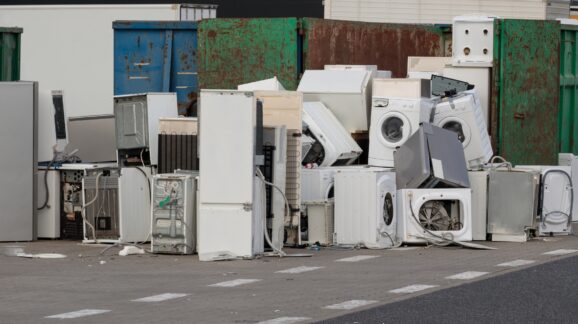Congressional Review Act can cancel three bad appliance regs

Photo Credit: Getty
The Congressional Review Act (CRA) is the easiest way for Congress to block some of the bad regulations enacted under the Biden administration. A resolution to disapprove a rule under the CRA requires only a simple 50 vote majority to pass the Senate, not than the usual 60 vote filibuster-proof majority needed for most bills. This difference is important given the current makeup of the Senate in which a simple majority may be all there is. Among other things, the CRA could be used against Biden era appliance regulations targeting water heaters, dishwashers, and air conditioning and refrigeration equipment.
Of course, there are far more than three bad appliance regulations, and in fact team Biden targeted nearly every major home appliance, including furnaces, washing machines and dryers, stoves, as well as light bulbs. But most of these rules were finalized before last August – early enough that the deadline to use the CRA has now passed. Here is a rundown of three that still fall within the CRA window:
1. Water heaters: A December 2024 final rule from the Department of Energy (DOE) sets a new energy efficiency standard that effectively outlaws gas-fired instantaneous water heaters by making them prohibitively expensive. More commonly known as tankless water heaters, these models heat up the water as needed and thus do not require a storage tank. Though less common than conventional tank storage water heaters, some consumers prefer them for their smaller size and generally lower operating costs. Regardless, DOE regulators have never been particularly kind to these water heaters, and the latest rule would boost their price by an agency-estimated $231. One industry group claims the actual number would be nearly twice that. Congressional rejection of this rule under the CRA would allow affordable tankless water heaters to remain on the market as an option for homeowners. Resolutions doing so have been introduced by Rep. Gary Palmer (R-AL) in the House and Sen. Ted Cruz (R-TX) in the Senate.
2. Dishwashers: Past DOE efficiency standards for dishwashers had the effect of doubling the time it takes to do a load of dishes from an hour or less to more than two. Reforms initiated by DOE under the first Trump administration would have addressed this flaw by creating a new standard achievable by faster dishwashers. However, the Biden administration came in and shut down this process, and a December 2024 final rule would have been the final nail in the coffin. A CRA resolution blocking this rule would once again open the door to regulatory changes allowing faster dishwashers.
3. Air conditioning and refrigeration equipment: The Environmental Protection Agency (EPA) finalized a rule last October adding significantly to the cost and complexity of repairing air conditioning and refrigeration equipment. Although commercial equipment such as that used in supermarkets is most directly impacted, there are also implications for repairs of residential air conditioning systems. This rule is part of the American Innovation and Manufacturing (AIM) Act, which allows the EPA to impose expensive requirements on cooling equipment deemed insufficiently climate friendly. Eliminating this rule would simplify the repair process for such equipment and thus reduce repair bills. A resolution doing so has been introduced by Rep. Neil Dunn (R-FL) in the House.
In all three cases, the CRA is far from a perfect solution, since each of these appliances are still hit with other regulations that will remain in place. In the case of water heaters, a separate regulation raising the cost of conventional tank water heaters is not eligible for CRA review. The same is true for other costly regulations impacting dishwashers as well as air conditioning and refrigeration equipment.
Nonetheless, killing off these three rules would restore some measure of consumer choice and cost savings, and would send a message to the regulators that they overreached. Perhaps most importantly, the successful use of the CRA in even a few instances could create momentum for Congress to consider broader legislation putting an end to the federal government’s meddling with appliances.